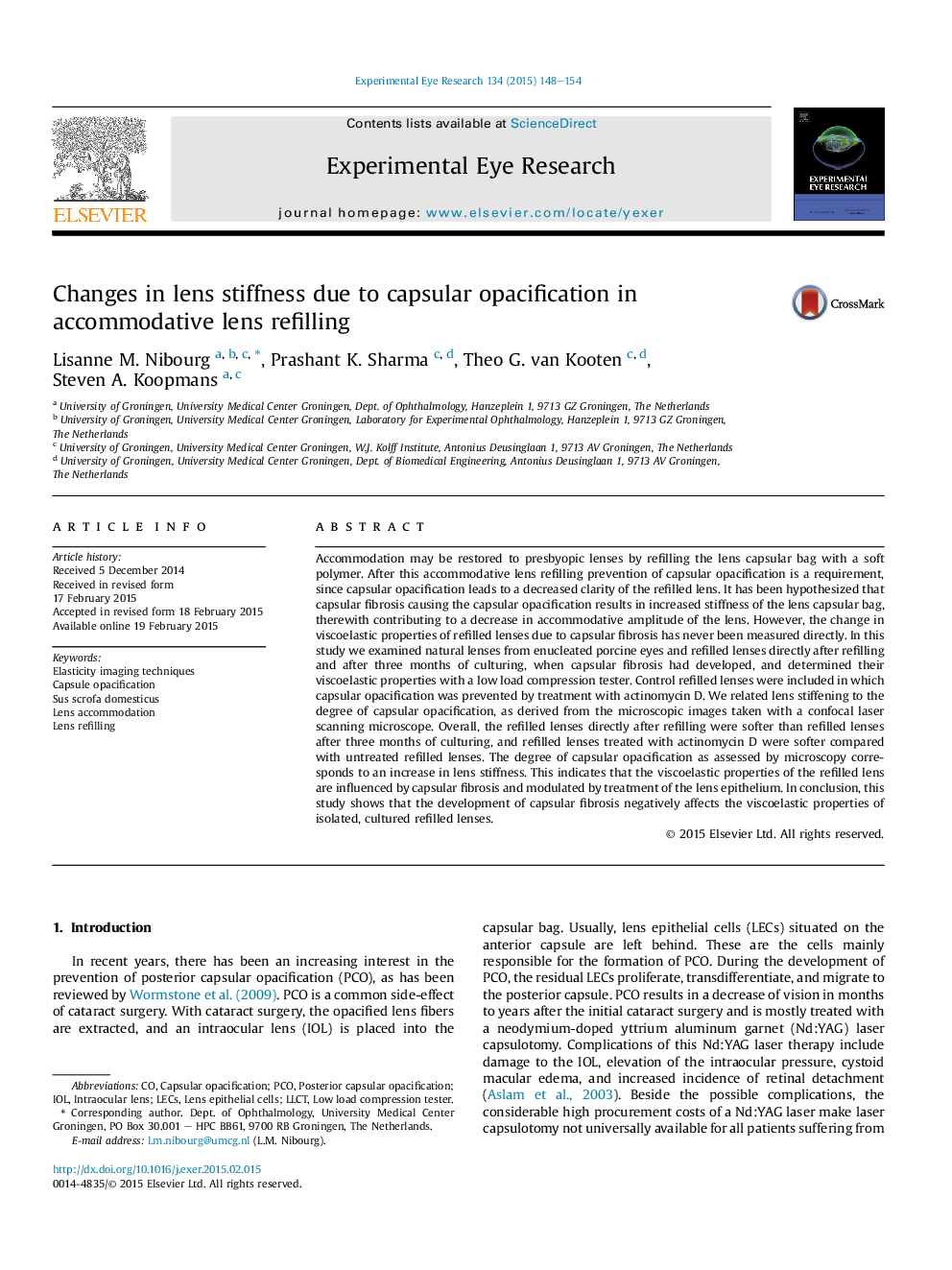| Article ID | Journal | Published Year | Pages | File Type |
|---|---|---|---|---|
| 6196607 | Experimental Eye Research | 2015 | 7 Pages |
â¢The stiffness of refilled lenses increased during three months of culturing.â¢This lens stiffening coincides with the development of capsular opacification.â¢Treatment with actinomycin D prevented capsular fibrosis, thus stiffening.â¢Capsular opacification in refilled lenses can be detected by measuring viscoelasticity.
Accommodation may be restored to presbyopic lenses by refilling the lens capsular bag with a soft polymer. After this accommodative lens refilling prevention of capsular opacification is a requirement, since capsular opacification leads to a decreased clarity of the refilled lens. It has been hypothesized that capsular fibrosis causing the capsular opacification results in increased stiffness of the lens capsular bag, therewith contributing to a decrease in accommodative amplitude of the lens. However, the change in viscoelastic properties of refilled lenses due to capsular fibrosis has never been measured directly. In this study we examined natural lenses from enucleated porcine eyes and refilled lenses directly after refilling and after three months of culturing, when capsular fibrosis had developed, and determined their viscoelastic properties with a low load compression tester. Control refilled lenses were included in which capsular opacification was prevented by treatment with actinomycin D. We related lens stiffening to the degree of capsular opacification, as derived from the microscopic images taken with a confocal laser scanning microscope. Overall, the refilled lenses directly after refilling were softer than refilled lenses after three months of culturing, and refilled lenses treated with actinomycin D were softer compared with untreated refilled lenses. The degree of capsular opacification as assessed by microscopy corresponds to an increase in lens stiffness. This indicates that the viscoelastic properties of the refilled lens are influenced by capsular fibrosis and modulated by treatment of the lens epithelium. In conclusion, this study shows that the development of capsular fibrosis negatively affects the viscoelastic properties of isolated, cultured refilled lenses.
Graphical abstractDownload high-res image (274KB)Download full-size image
